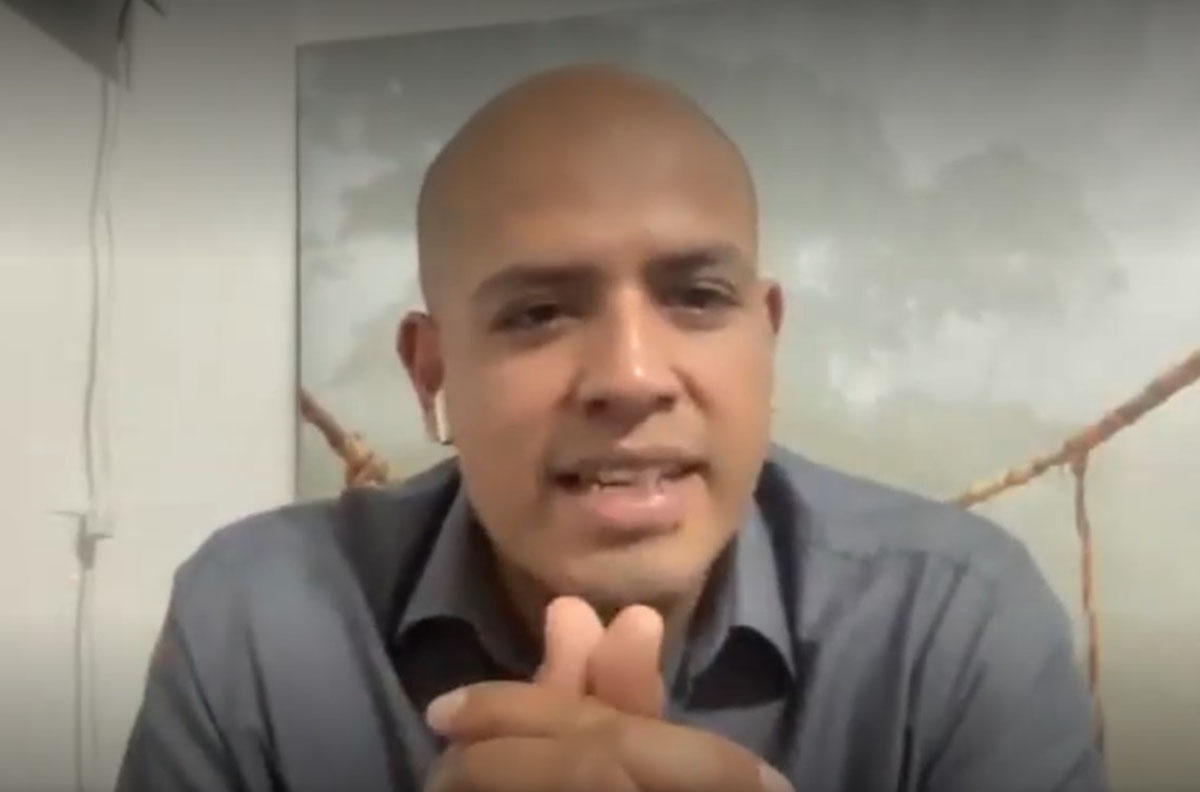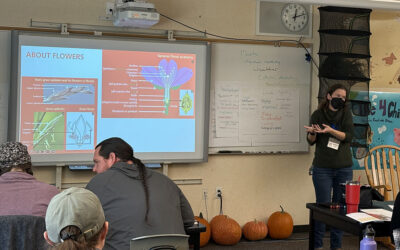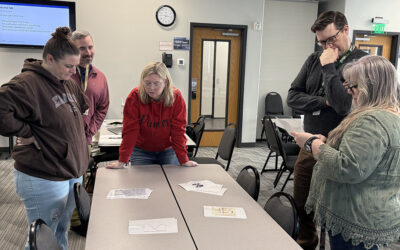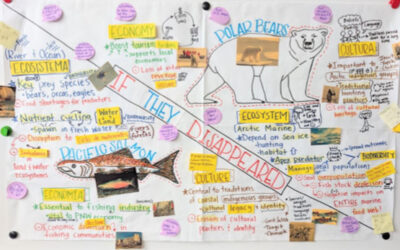Nehemias Chalma, Compost Facility Manager at Natural Selection Farms, spoke to teachers in both English and Spanish cohorts about using compost to support healthy soil.
Where does good food go bad? This question gave educators in ESD 105, NCESD, and PSESD something to ponder this winter as they explored Pacific Education Institute’s (PEI) Food Waste storyline. Megan Rivard, PEI Central Washington, worked with Carissa Haug (NCESD) and Luke Matlack (ESD 105) to offer professional learning, 6 STEM clock hours, and stipends for participants. Cheryl Lydon (PSESD) found funding to support an additional cadre of bilingual educators from PSESD.
The 47 participants were split into three mixed-ESD cohorts, two English and one bilingual-Spanish cohort. Educators used a shared phenomenon experience with maple syrup tasting to create carbon cycling models, and then used those sticky, sweet carbon models to facilitate learning about NGSS 3-Dimensional assessments. Participants reported increased confidence in teaching NGSS climate science-related topics. During their asynchronous tasks, participants completed an at-home food waste audit and learned about the Muckleshoot food sovereignty project. “I loved the time to dig into the assignments on my own time. They are always well worth my time and easy to adapt for my classroom use” stated one participant.
The highlight for many was the visit from Natural Selection Farms (NSF) Compost Facility Manager Nehemias Chalma. Chalma joined each cohort to speak about the work NSF does to create high-quality compost from waste products. Material from local orchards, vineyards, packaging warehouses, and breweries can be combined in specific recipes to bring soils around the state back to top health. Chalma also shared his passion for learning, and looks forward to a time when students can come visit the facility to get their hands in the compost.




